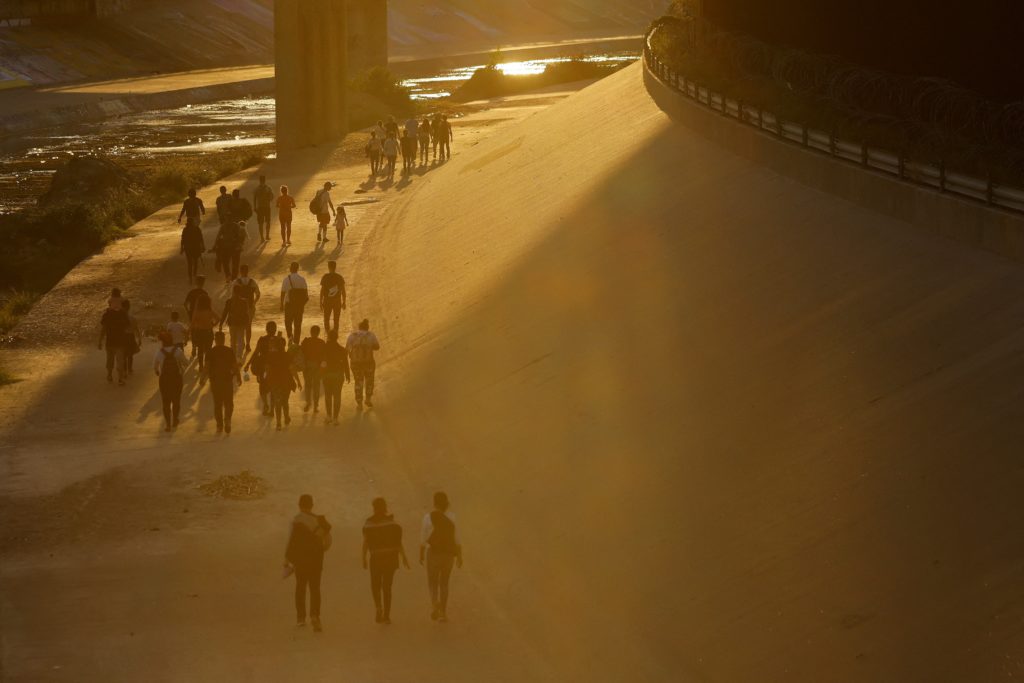As the nation’s immigration crisis worsens with seemingly no solutions imminent, the U.S. bishops’ conference migration chair is calling on government leaders to put partisanship aside and work together to find a path forward.
“We simply cannot allow partisan divisions to continue to impede the needed interventions of government,” Auxiliary Bishop Mario Dorsonville of Washington said in an Oct. 18 statement. “And while there are no easy solutions to the challenges they face, there is a just path forward that is waiting to be paved by those who are committed to the future of our country.”
U.S. Border Patrol encountered a record 2,005,026 undocumented immigrants in Fiscal Year 2022, which ran from Oct. 1, 2021 – Sept. 30, 2022. The number is about 400,000 more than Fiscal Year 2021.
Complicating matters, Texas Gov. Greg Abbott has been busing migrants to Democrat led sanctuary cities – Washington, D.C. Chicago, and New York – to give them a taste of what Texas faces in trying to deal with the crisis, and to make a point about the failures of the Biden administration’s border policies. Gov. Doug Ducey of Arizona has bused migrants to Washington, D.C., as well, and Gov. Ron DeSantis of Florida recently flew migrants to Martha’s Vineyard. The actions have been decried as a political stunt.
The Biden administration has also been under fire for its use of Title 42 – a border policy implemented by the Trump administration that allows the immediate expulsion of migrants and limits their legal right to seek asylum. It was enacted as a public health measure to mitigate the spread of COVID-19.
President Joe Biden has yet to make good on his campaign trail promise to undo the policy. In fact, the administration has done the opposite. Just last week the Department of Homeland Security announced that “Venezuelans who enter the United States between ports of entry, without authorization, will be returned to Mexico” – a move expanding the scope of Title 42.
Dorsonville said in the reflection that the nation’s bishops are “deeply concerned” about the preservation and continued use of the policies like Title 42, “which unjustly deny access to humanitarian protections that were enshrined in law as a response to horrors witnessed during the twentieth century.”
With the actions of both state and federal leaders mentioned above, the USCCB chairman lamented what he called “the troubling convergence of our broken immigration system and the political divisions of our time being inflicted upon men, women, and children seeking refuge in our country.”
Dorsonville renewed the call from the church that comprehensive immigration reform is needed and long overdue. Specifically, policies that, according to Dorsonville, provide for the full integration of long-time residents, promote family unity, honor due process, respect rule of law, expand legal pathways, preserve and strengthen humanitarian protections, prioritize dignified alternatives to detention, recognize the contributions of foreign-born workers, protect the vulnerable, and address the root causes of migration.
“National, state, and local governments must work collaboratively with one another and civil society to devise a collective and human response to the unavoidable reality of migration, seeking to embrace the potential it offers,” Dorsonville said. “In this context, strong federal leadership is especially important.”
He added that the U.S. Catholic community remains steadfast in its commitment to welcome the stranger, especially the most vulnerable, who “are imbued by God with inviolable dignity” no matter where they are from or what their situation may be.
“This is the foundation of our Church’s unwavering defense of human life in all its forms, contemplated in a special way during Respect for Life Month,” Dorsonville said.

